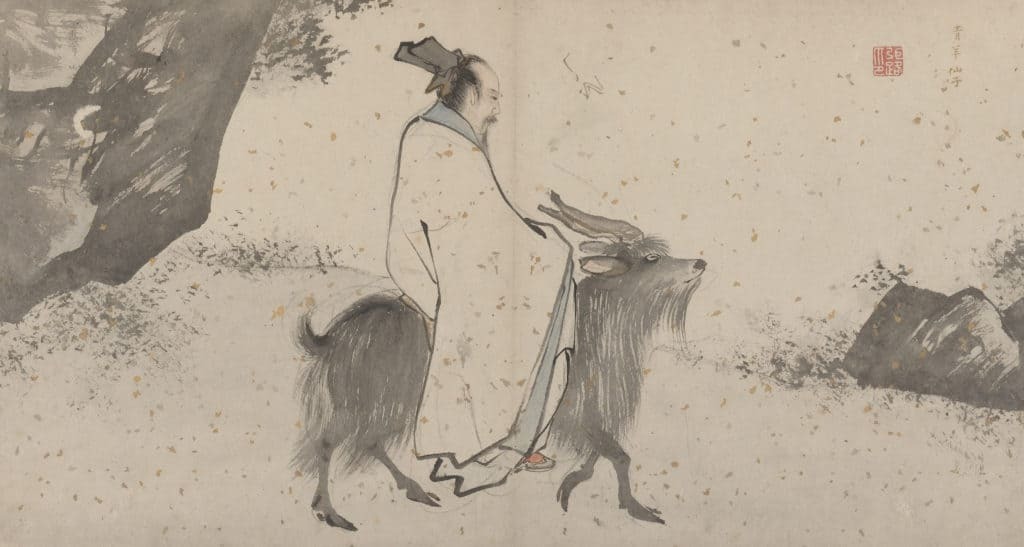
In the intricate tapestry of Chinese history and spirituality, the figure of Zhenyuan, a famed Taoist monk, remains an enduring symbol of innovation, dedication, and serenity. His life, marked by the timeless principles of Dao (the Way), transcended the typical spiritual boundaries and intersected with groundbreaking scientific advancements, particularly his connection with gunpowder. Let's embark on a journey through Zhenyuan's life and his profound achievements.
Zhenyuan's Early Life and Entry into Dao
Born in a humble household in the late Tang dynasty, Zhenyuan's early life is a story of struggle, curiosity, and eventual spiritual awakening. Fascinated by the complexity of the universe and the intricacies of human existence, the young Zhenyuan found himself drawn towards Taoist principles, which sought to unravel these mysteries. At the age of seventeen,he joined a Taoist monastery, taking his first steps on the path of spiritual discovery.
Immersion into Daoism
Zhenyuan's immersion into Daoism was an expedition of intense study and meditation. He devoured ancient texts, honed his skills in divination, alchemy, and astrology, and spent countless hours meditating in nature's embrace. His dedication and intuitive grasp of Taoist principles quickly distinguished him among his peers. Yet, Zhenyuan's thirst for knowledge wasn't satiated by the esoteric alone. He held a strong interest in the natural and physical sciences, an interest that would later intertwine with his spiritual pursuits.
Zhenyuan and the Tao of Science
True to the Taoist philosophy of being in harmony with the natural world, he began to explore the scientific principles behind the phenomena he observed. He studied the properties of various natural substances and experimented with their reactions. Through meticulous research and observation, he began to develop an empirical understanding of the world, a view that beautifully complemented his spiritual perspective.
The Relationship with Gunpowder
Zhenyuan's scientific journey took a significant turn when he started experimenting with various mixtures in his pursuit of an elixir of immortality, an obsession common among Taoist monks. Unbeknownst to him, this pursuit would lead him towards a discovery that would change the course of human history.
The elixir Zhenyuan sought required the creation of various chemical compounds. This led him to sulfur and saltpeter, ingredients that, along with charcoal, form the fundamental constituents of gunpowder. Through rigorous experimentation, he eventually discovered the explosive properties of this mixture.
Gunpowder: A Spiritual Dilemma
Zhenyuan's discovery presented a profound moral dilemma. As a Taoist monk, his teachings emphasized harmony, tranquillity, and non-violence. Yet, he had inadvertently created a substance capable of immense destruction. This crisis provoked deep introspection in Zhenyuan, pushing him to reconcile his spiritual beliefs with his scientific achievements.
The monk approached this conundrum with wisdom and grace. Recognizing the potential danger, he ceased his experiments and documented his findings with explicit warnings about the substance's destructive power. He hoped this would deter others from using it for violent purposes.
Contributions to Taoism
While Zhenyuan's association with gunpowder's discovery is well-known, his contributions to Taoism must not be overlooked. Zhenyuan redefined the practice of meditation, emphasizing the significance of blending physical reality with spiritual understanding. His interpretations of ancient texts offered fresh perspectives, emphasizing simplicity, harmony, and a deep respect for the natural world.
Zhenyuan's teachings significantly influenced Taoist practice, guiding his followers to a more mindful and connected existence. They were distilled in his works, including "On The Way of Harmony," a revered text still studied in Taoist circles today.
Legacy
Zhenyuan's legacy is a tale of two worlds: one of deep spirituality and one of scientific curiosity. As a Taoist monk, he enriched the philosophy of Dao, ushering in a nuanced understanding of harmony and connection to the natural world. As a pioneering scientist, his discovery of gunpowder – albeit accidental – revolutionized technology and warfare, forever altering the course of human history.
The monk's association with such a destructive substance could easily have tainted his spiritual legacy. But Zhenyuan handled this dilemma with exceptional wisdom and maturity, demonstrating the true essence of his Taoist principles. He serves as a reminder that even in the face of profound scientific discovery, we must remain grounded in ethical responsibility.
Zhenyuan's life is a testament to the harmonious coexistence of science and spirituality, the physical and metaphysical, the seen and unseen. His journey demonstrates that each discovery, each step forward, brings with it moral implications that must be thoughtfully considered.
In a world that often draws firm lines between spirituality and science, Zhenyuan serves as a beacon, inviting us to embrace the Dao of balance and harmony, inviting us to journey with him along the intricate path of discovery and understanding. His life, teachings, and legacy continue to inspire, reminding us that wisdom lies in the harmonious integration of all aspects of existence.
Zhenyuan's story encourages us to continue exploring, learning, and growing, but never at the expense of ethical responsibility or spiritual tranquillity. It's a legacy of wisdom and a call to pursue knowledge mindfully, thereby illuminating the path for those who tread the Way.
We are all students of history and strive to learn from our past. If you wish to read more about Chinese history, click here.
If you know of any forums or sites that should be referenced on this listing, please let us know here.



